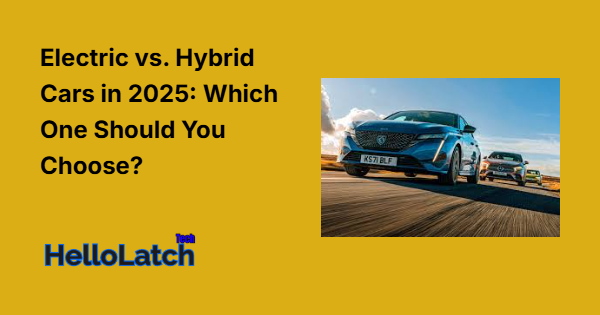
As more Americans make the shift toward eco-friendly transportation, the choice between electric vehicles (EVs) and hybrid cars has become a hot topic. In 2025, both options are more accessible, efficient, and tech-packed than ever before. But which one is right for you?
Whether you’re concerned about rising gas prices, environmental impact, or long-term value, understanding the key differences between electric and hybrid cars will help you make an informed decision.
What’s the Difference Between Electric and Hybrid Cars?
- Electric Vehicles (EVs) are powered entirely by electricity. They use a battery pack to drive electric motors and require charging through a home outlet or public charging station.
- Hybrid Cars combine a traditional gas engine with an electric motor. The battery charges while driving or braking (called regenerative braking), and they don’t need to be plugged in.
There are also plug-in hybrids (PHEVs) that can be charged like EVs but still have a gas engine for backup range.
Pros of Electric Vehicles in 2025
- Zero Emissions: EVs produce no tailpipe emissions, making them the cleanest option for the environment.
- Lower Operating Costs: Electricity is generally cheaper than gas, and maintenance is minimal due to fewer moving parts.
- Tax Credits & Incentives: Many federal and state programs offer rebates or tax benefits when purchasing an EV.
- Quiet and Smooth Ride: EVs offer instant torque and near-silent operation for a premium driving experience.
- Growing Charging Network: With the U.S. expanding fast-charging infrastructure, range anxiety is less of a concern in 2025.
Pros of Hybrid Cars in 2025
- No Charging Required: Perfect for drivers who don’t have access to charging stations or prefer gas convenience.
- Great Fuel Efficiency: Hybrids get significantly better mileage than traditional gas cars, often exceeding 50 MPG.
- Lower Purchase Price: Generally more affordable than EVs, making them ideal for budget-conscious buyers.
- Familiar Driving Experience: Transitioning from gas to hybrid is seamless and doesn’t require new habits.
- Reliable for Long Trips: Since hybrids don’t rely solely on battery range, they’re great for extended highway travel.
Which One Should You Choose?
Your choice depends on your lifestyle, budget, and driving habits:
- Choose an EV if:
- You have access to home or nearby public charging.
- You drive mostly in the city or commute short-to-medium distances.
- You want lower long-term operating costs and a greener footprint.
- Choose a Hybrid if:
- You take frequent road trips or live in a rural area.
- You want better fuel economy without relying on charging stations.
- You prefer a lower upfront cost and proven reliability.
Final Thoughts
In 2025, both electric and hybrid cars offer impressive benefits. As the automotive industry pushes toward cleaner and smarter vehicles, either option is a forward-thinking move. The right choice comes down to your daily routine, driving preferences, and long-term goals.
Do your research, compare models, and test drive both options before you decide. Whichever you choose, you’ll be driving into a cleaner, more efficient future.

